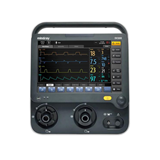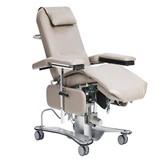Sandy MacQuarrie, lecturer in the CSU School of Biomedical Sciences in Bathurst, said this follows the involvement of five paramedic students in mass casualty simulations at Holsworthy Army Barracks with the NSW Police Force Counterterrorism Unit in September 2014.
"These students have provided an excellent insight into their experience," MacQuarrie said. "It's wonderful that they can reflect on their practical training experiences with real-world practitioners and are confident to suggest to academics how we can enhance it in the future.
"This is the constant improvement we strive for at Charles Sturt University, and which paramedics embrace in their professional roles. It's win-win for students, academics and practitioners," he said.
The students, who were then in their second year of the Bachelor of Clinical Practice (Paramedic), are Orani Abeyewardene, Ethan King, Michael Nielsen, Rafi Uddin, and James York. They delivered their findings in a seminar at CSU in Bathurst recently for academics, students, and paramedics.
"By participating in this major simulation exercise we discovered that debriefing after scenarios was vital, as there was much that needed to be discussed," York said. "It took us eight months, but we collated information from interviews with lecturers and students, peer reviewed articles, and our own experiences at Holsworthy and in class at University."
Abeyewardene said the group found four areas key to successful training and debriefing.
"Firstly, what we term 'emotional seriousness', which refers to the attitudes that students and educators have towards the scenario. The more serious and realistic the scenario is made to be, the more the student learns," she said.
"The next category was active listening; educators need to listen to each student's debriefing reasoning without a preconceived response to what the student says.
"Then, the student's clinical reasoning should be examined; it should be done straight after a scenario by the student explaining what they did and why. This allows the student to realise any mistakes they may have made instead of being told, and also it allows for justification of treatment.
"Finally, 'interest' refers to the level of both students' and educators' interest in the scenario. Passion in a topic creates enthusiasm in others."
The students have developed a simulation flowchart to provide educators in the field with an effective framework that will improve these four key areas of debriefing.
"The simulation flowchart will allow for a seamless transition between the simulation exercise and debriefing process, and give students the greatest opportunity to gain insight and knowledge from the simulation experience," student Ethan King said.
The project was completed independently of the students' regular studies at CSU and was not a part of any subject assessment. The students are currently arranging to do a podcast with host Chris Cebollero on podcast service 'Inside EMS'. They are also finalising submission dates for a two-part story for publication on an emergency services-based website.







